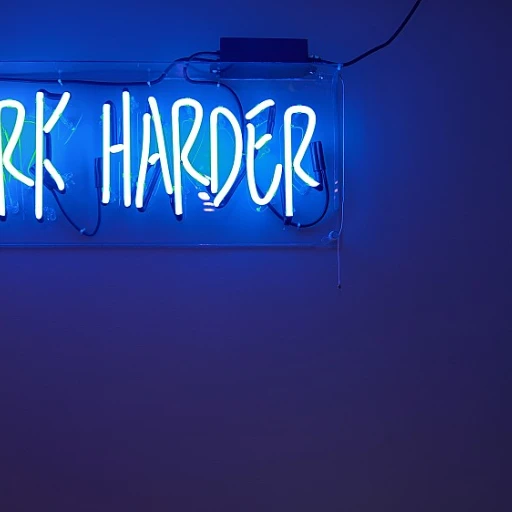The Role of AI in Talent Acquisition
AI Revolutionizing the Recruitment Process
The introduction of artificial intelligence in human resources is significantly transforming the recruitment landscape. Gone are the days of manually filtering through stacks of resumes. In their place, AI-powered systems are optimizing talent acquisition processes, allowing HR professionals to focus on more strategic tasks.
AI's integration into recruitment streamlines the initial stages of hiring, from sourcing candidates to conducting interviews. These intelligent systems are capable of scanning thousands of resumes in seconds, highlighting the most qualified candidates based on specific criteria. The use of natural language processing and machine learning enables these systems to understand and interpret vast amounts of data, ensuring no potential talent goes unnoticed. This technological shift not only speeds up the hiring process but also reduces human bias, promoting a more equitable and objective selection of candidates.
Moreover, AI-driven tools are now capable of personalizing the candidate experience. By utilizing sentiment analysis and other AI techniques, recruiters can tailor their communication and engage with candidates more effectively. This personalization can improve the overall candidate experience, making organizations more attractive to top talent.
Another remarkable feature of AI in talent acquisition is predictive analytics. By analyzing patterns in data, AI can predict which candidates will become top performers, based on historical data and trends. This enables HR departments to make more informed decisions, ultimately leading to a more efficient recruitment process.
For more information on how AI impacts talent acquisition and management, visit
machine learning on talent acquisition and management.
While AI greatly enhances talent acquisition, it's important to recognize that it is just one part of the broader transformation in HR. As part of this change, AI is also helping to improve the employee experience and elevate performance management, paving the way for a more agile and responsive workforce.
Enhancing Employee Experience with AI
Enhancing Employee Engagement with AI Technologies
Artificial intelligence is progressively becoming an integral part of improving employee experience within organizations. Businesses are utilizing AI to create more personalized and engaging work environments, thereby increasing job satisfaction and productivity among employees.
One notable advancement is the use of AI-powered chatbots and virtual assistants that streamline communication and support. These tools provide employees with timely information and services without the need for human interaction, helping resolve queries or issues quickly and effectively. As a result, it leads to a more satisfying and convenient workplace experience.
Moreover, AI-driven platforms can enhance onboarding processes by delivering tailored training materials and assistance to new hires. This ensures that employees acclimate smoothly and enjoy a successful start to their roles.
Employing AI in employee feedback mechanisms also holds substantial potential. Analyzing feedback with machine learning algorithms allows HR departments to identify trends and issues that might otherwise go unnoticed. Consequently, they can take proactive measures to address concerns and cultivate a positive organizational culture.
Implementing AI in these facets is not without its challenges and considerations, as highlighted in further sections of the article. However, the potential benefits make it a worthwhile endeavor for modern organizations aiming to optimize their human resources strategies.
For more insights on how machine learning is impacting talent acquisition and management, you can explore the influence it has on shaping HR practices
here.
Revolutionizing Employee Evaluations through AI
Artificial Intelligence is not only transforming talent acquisition and employee experiences, but it is also making significant strides in the field of performance management. Traditionally, evaluating employee performance has been time-consuming, subjective, and fraught with potential biases. However, AI-driven tools are now offering innovative solutions to these long-standing challenges, promising a more data-driven, objective, and fair approach.
AI algorithms are capable of analyzing vast amounts of data swiftly, identifying patterns in employee work habits, achievements, and behaviors. This enables managers to have a clearer, more comprehensive view of an employee's performance, reducing reliance on periodic reviews based solely on recent events. Regular and consistent feedback, powered by AI, can help employees align more closely with organizational goals and understand the areas that require improvement.
Furthermore, these AI systems can integrate seamlessly with other HR tools to enhance their functionality. For instance, by combining AI with real-time workforce analytics, organizations can effectively track performance metrics in a live setting, offering proactive support and resources to employees who show signs of struggling.
What sets AI apart is its capacity to provide personalized development recommendations. By customizing feedback and career development plans, AI technology promotes individual growth, helping employees progress in their roles while simultaneously boosting overall productivity levels within the company.
Moreover, enhancing HR with AI-driven tools ensures that potential unconscious biases are minimized in the performance evaluation process. AI systems can be designed to consider only objective criteria, fostering an equitable work environment where evaluations are based solely on merit. This advancement not only promotes fairness but also encourages diversity and inclusivity within teams.
Indeed, while AI offers numerous advantages in transforming performance management, it's crucial to continuously address associated ethical considerations and system limitations. By doing so, businesses can fully harness AI's potential to innovate and improve their HR processes.
AI-driven tools offer a promising solution to modernize HR practices.
Real-Time Workforce Planning and Management
Streamlining Workforce Management with AI
Artificial intelligence (AI) has revolutionized multiple aspects of human resources, providing a transformative edge in managing workforce-related challenges. In the realm of real-time workforce planning, AI's capabilities are especially pivotal. The technology empowers HR professionals to anticipate workforce needs, optimize resource allocation, and adapt swiftly to changing business environments.
AI-driven tools are equipped to process vast amounts of data from various sources in real-time, offering insights that were previously unimaginable. For instance, patterns in employee turnover can be analyzed, predicting attrition rates and highlighting areas for intervention. Such data-driven predictions help HR teams to proactively ensure staffing levels meet project demands and maintain optimal productivity.
Furthermore, AI offers a high degree of accuracy in forecasting future workforce trends, which is essential for strategic planning. By analyzing historical data and current employee dynamics, AI systems can suggest strategic workforce initiatives and training programs tailored to bridge skill gaps and prepare employees for future roles.
Additionally, the integration of AI in workforce planning supports personalization of employee experiences. The technology assists in aligning individual career paths with organizational objectives, enhancing both employee satisfaction and retention. This interconnected approach not only translates to better team performance but also fosters a culture of growth and innovation.
In previous discussions, we've seen how AI enhances talent acquisition and employee experience. Here, the same technology extends its benefits by continuously ensuring that human capital aligns with the evolving goals of businesses. As AI continues to mature, HR professionals are equipped with robust tools to not only manage but predict and adapt to workplace dynamics in a way that is both efficient and humane.
Generative AI and Human Resources
Innovative Applications of Generative AI in HR
Generative AI is making waves across various industries, and human resources is no exception. This cutting-edge technology is redefining how HR professionals approach tasks, offering creative solutions that were previously unimaginable. While earlier parts of this article have explored AI's role in talent acquisition and employee experience, generative AI pushes the boundaries even further.
Generative AI can create realistic simulations for training and development, providing employees with immersive learning experiences. These simulations can mimic real-world scenarios, allowing employees to practice skills and decision-making in a controlled environment. This not only enhances learning outcomes but also boosts employee confidence and preparedness.
Moreover, generative AI can assist in creating personalized content for employee engagement. Whether it's crafting tailored career development plans or generating customized feedback reports, this technology can offer a level of personalization that resonates with employees on an individual level. This aligns with the earlier discussion on enhancing employee experience, as it fosters a more inclusive and supportive workplace environment.
In addition to these applications, generative AI can support HR teams in automating creative tasks, such as drafting job descriptions or designing employee recognition programs. By handling these tasks, HR professionals can focus more on strategic initiatives that drive organizational success.
While generative AI offers exciting possibilities, it also brings challenges and ethical considerations, which are crucial to address. Ensuring transparency, avoiding bias, and maintaining data privacy are essential to harnessing this technology responsibly. As we continue to explore AI's potential in HR, it is vital to balance innovation with ethical practices to create a future where technology and humanity thrive together.
Challenges and Ethical Considerations
Addressing the Ethical Implications
Artificial intelligence has demonstrated considerable potential in transforming human resources operations, from talent acquisition to performance management. However, with such revolutionary advancements come a host of challenges, particularly concerning ethical considerations that cannot be overlooked. As HR professionals increasingly integrate AI tools into their processes, it is fundamental to address these implications to ensure a fair and equitable workplace.
One of the significant ethical concerns associated with AI in HR is the potential for bias. While AI can streamline recruitment and selection processes, it is only as unbiased as the data it is trained on. Historical biases embedded in data can lead to AI systems making biased decisions, inadvertently perpetuating discrimination in hiring and performance evaluations. It's crucial for HR departments to diligently audit and refine AI algorithms to minimize these biases and promote diversity and inclusion.
Privacy concerns also rise to the forefront with AI's ability to collect and analyze vast amounts of employee data. Companies must ensure they are transparent about how they utilize AI and safeguard employee data to avoid breaches of confidentiality or trust. Implementing comprehensive data privacy policies and obtaining informed consent from employees are steps towards mitigating privacy risks.
Furthermore, the integration of AI may prompt concerns over job displacement. As machines take on more roles traditionally performed by humans, there is a fear that this could lead to unemployment or a reduction in workforce morale. Human resources must focus on balancing automation with human touch, empowering employees through reskilling and upskilling initiatives to prepare them for new opportunities within the organization.
Addressing these challenges requires a proactive approach from HR professionals, incorporating ongoing dialogue with stakeholders and industry experts to align technological advancements with ethical standards. By maintaining a commitment to ethical AI deployment, organizations can leverage AI's benefits while nurturing a positive organizational culture that values transparency, fairness, and human connection."}







